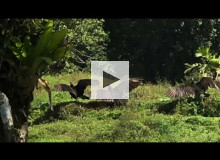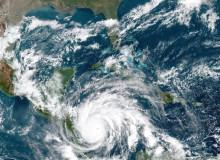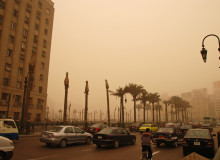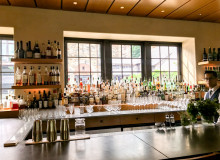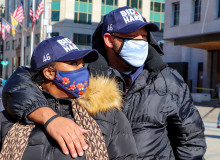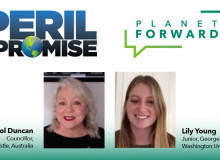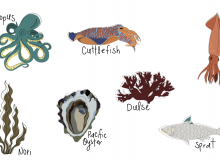Climate
SUNY-ESF
Learn about biodiversity through the short story of a tree that is witnessing the impact of humans on its environment—from canopy loss to animal migration.
Northwestern University
Global warming may make infectious diseases such as COVID-19 more widespread by changing disease progression and interaction among people, warn health and climate experts. Ester Wells reports for Medill.
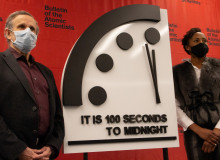
Robert Rosner, left, chair of the Bulletin Science and Security Board, and board member Suzet McKinney unveil the time on the Doomsday Clock at a Zoom news conference on Jan. 27. Rosner is a professor of astrophysics at the University of Chicago, and McKinney is CEO and executive director of the Illinois Medical District. (Bulletin of the Atomic Scientists)
Northwestern University
Scientists sound the alarm on climate change and nuclear risk as the Bulletin of the Atomic Scientists announced the 2021 time for its historic clock, which counts down to a “midnight” apocalypse. Carlyn Kranking reports.
The George Washington University
Experts anticipate the Middle Eastern-North African region being affected by climate change more than other regions. While the extent is unclear, certain factors make these countries particularly susceptible.
The George Washington University
To lower their environmental impact, restaurants are transitioning their operations to be more sustainable and climate friendly.
Northwestern University
President Joe Biden said the U.S. is facing “a climate in crisis” in his inauguration speech Wednesday, marking the beginning of a presidency that promises action on climate. Nico Portuondo reports for Medill.
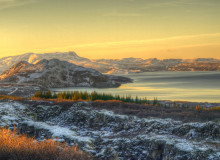
Lake Thingvallavatn in Iceland used to freeze solid in the winter. Now, it is beginning to thaw. (Axel Kristinsson/Creative Commons 2.0)
Planet Forward Correspondent | Dartmouth College
On March 9, 2017, a strange crack appeared on the ice-laden surface of Thingvallavatn, the largest lake in Iceland.
Founding Director, Planet Forward
As climate change worsens wildfires, what can the U.S. learn from Australia's fires?
George Washington University
The community of Ellicott City, MD is working together to protect against future devastating floods.
George Washington University
An exploration of the untapped value of cephalopods and algae in a sustainable seafood diet.

